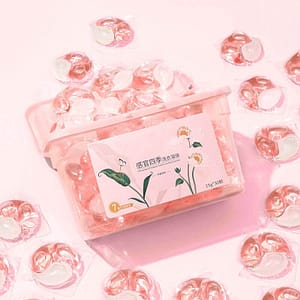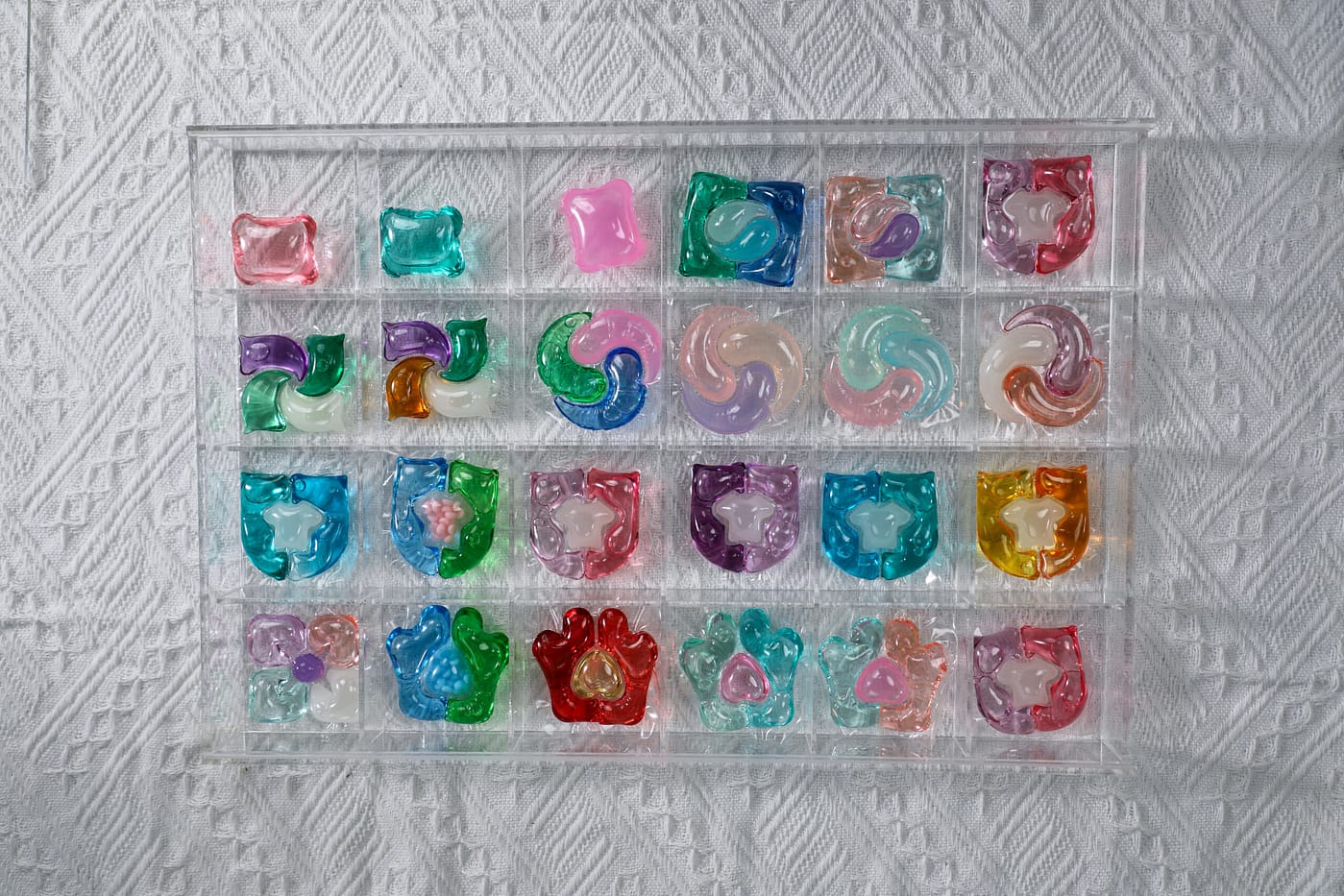Introduction: The Allure of Aromatherapy
In a world filled with chaos and constant hustle, finding moments of tranquility and relaxation has become a precious pursuit. Aromatherapy, with its captivating scents and therapeutic properties, offers a gateway to a world of serenity and well – being. Aromatherapy products, such as essential oils, candles, diffusers, and room sprays, have gained immense popularity in recent years, and for good reason. They not only infuse our living spaces with delightful fragrances but also have a profound impact on our physical, mental, and emotional health.
The Science Behind Aromatherapy
Aromatherapy is based on the principle that certain scents can stimulate the olfactory system, which is closely linked to the brain’s limbic system. The limbic system is responsible for regulating emotions, memory, and the autonomic nervous system. When we inhale the aroma of essential oils, the scent molecules travel through the nasal cavity to the olfactory bulb, where they are detected by olfactory receptors. These receptors then send signals to the limbic system, triggering various physiological and psychological responses.
For example, the scent of lavender has been shown to have a calming effect on the nervous system, reducing stress and anxiety. It can also promote better sleep by interacting with the brain’s neurotransmitters. On the other hand, the invigorating scent of citrus oils, like lemon or orange, can boost energy levels and improve mood. Eucalyptus oil is known for its decongestant properties, helping to clear the sinuses and relieve respiratory discomfort.
Aromatherapy Products
Essential Oils
Essential oils are the heart and soul of aromatherapy. These highly concentrated plant extracts are obtained through processes such as steam distillation, cold – pressing, or solvent extraction. Each essential oil has its own unique chemical composition, which determines its aroma and therapeutic properties.
Popular essential oils include lavender, peppermint, tea tree, and frankincense. Lavender is a versatile oil that can be used for relaxation, sleep improvement, and skin care. Peppermint is great for relieving headaches, nausea, and promoting mental clarity. Tea tree oil has antibacterial and anti – fungal properties, making it useful for treating skin conditions. Frankincense is known for its spiritual and grounding qualities, as well as its potential benefits for skin health.
Essential oils can be used in a variety of ways. They can be added to a diffuser to fill a room with their aroma, diluted with a carrier oil and applied topically for massage, or added to a warm bath for a luxurious and relaxing soak.
Aromatherapy Candles
Aromatherapy candles are a popular choice for creating a cozy and inviting atmosphere. These candles are typically made with natural waxes, such as soy or beeswax, and infused with essential oils. As the candle burns, the heat releases the aroma of the essential oils into the air, filling the room with a delightful scent
When choosing an aromatherapy candle, it’s important to look for high – quality products that use pure essential oils rather than synthetic fragrances. Synthetic fragrances may not have the same therapeutic benefits and can sometimes contain harmful chemicals. Additionally, consider the size and burn time of the candle, as well as the type of wax used. Soy candles, for example, are a popular choice as they are renewable, biodegradable, and burn cleanly.
Diffusers
Diffusers are an excellent way to disperse essential oils into the air without the use of heat. There are several types of diffusers available, including ultrasonic diffusers, nebulizing diffusers, and reed diffusers.
Ultrasonic diffusers use high – frequency vibrations to break down essential oils into tiny particles and disperse them into the air as a fine mist. They are quiet, easy to use, and can cover a large area. Nebulizing diffusers, on the other hand, use compressed air to break down the essential oils into a fine mist. They are more expensive but are highly effective at dispersing the purest form of essential oils. Reed diffusers are a low – maintenance option that uses reeds to absorb the essential oil and release the aroma into the air over time
Room Sprays
Room sprays are a convenient and quick way to freshen up a room and add a pleasant aroma. They are typically made with a base of water or alcohol, along with essential oils or synthetic fragrances. Room sprays can be used in any room of the house, from the living room to the bathroom, to eliminate odors and create a more inviting environment.
When making your own room spray, use high – quality essential oils and a clean spray bottle. You can add a small amount of witch hazel or vodka to help the essential oils mix with the water. Some popular essential oil combinations for room sprays include lavender and lemon for a fresh and calming scent, or eucalyptus and peppermint for a revitalizing and invigorating aroma.
Benefits of Aromatherapy Products
Improved Sleep Quality
For those struggling with insomnia or restless sleep, aromatherapy can be a natural and effective solution.
Enhanced Focus and Concentration
Certain essential oils can also boost mental clarity and concentration. Diffusing these oils in your workspace or inhaling them directly from a bottle can help you stay focused, improve your memory, and increase productivity.
Physical Health Benefits
Aromatherapy can also have positive effects on physical health. Eucalyptus oil, as mentioned earlier, can help to clear the sinuses and relieve respiratory congestion.
Choosing the Right Aromatherapy Products
Consider Your Needs
Before purchasing aromatherapy products, consider what you hope to achieve. Are you looking for stress relief, better sleep, or a mood boost? If you need a pick – me – up, opt for invigorating scents like citrus or peppermint.
Quality Matters
When it comes to aromatherapy products, quality is key. Look for products that are made with pure, high – quality essential oils. Check the labels for information about the source of the oils, the extraction method, and any additives. Avoid products that contain synthetic fragrances, artificial colors, or harmful chemicals.
Read Reviews
Reading reviews from other customers can be a great way to gauge the quality and effectiveness of aromatherapy products. Look for reviews on the product’s website, online marketplaces, or beauty and wellness blogs. Pay attention to comments about the aroma, the longevity of the scent, and any reported benefits.
Incorporating Aromatherapy into Your Daily Routine
Morning Routine
This can help you wake up feeling refreshed and energized. You can apply a diluted essential oil blend, like rosemary and bergamot, to your wrists or temples for an extra boost of focus and clarity.
After – Work Relaxation
After a long day at work, unwind with an aromatherapy bath. This can help to relax your muscles, reduce stress, and improve your mood. You can also light an aromatherapy candle in the bathroom to create a more relaxing atmosphere.
Evening Wind – Down
Before going to bed, use a diffuser in your bedroom to fill the air with a calming scent, such as lavender or chamomile. You can also place a few drops of essential oil on a tissue and tuck it under your pillow. This can help you fall asleep more easily and stay asleep throughout the night.
Conclusion: Embrace the Aromatherapy Lifestyle
Aromatherapy offers a natural and holistic approach to well – being. By incorporating aromatherapy products into your daily routine, you can create a more peaceful, relaxing, and healthy environment. Whether you’re looking to reduce stress, improve sleep, or enhance your mood, there’s an aromatherapy product out there for you. Your mind, body, and spirit will thank you for it.











